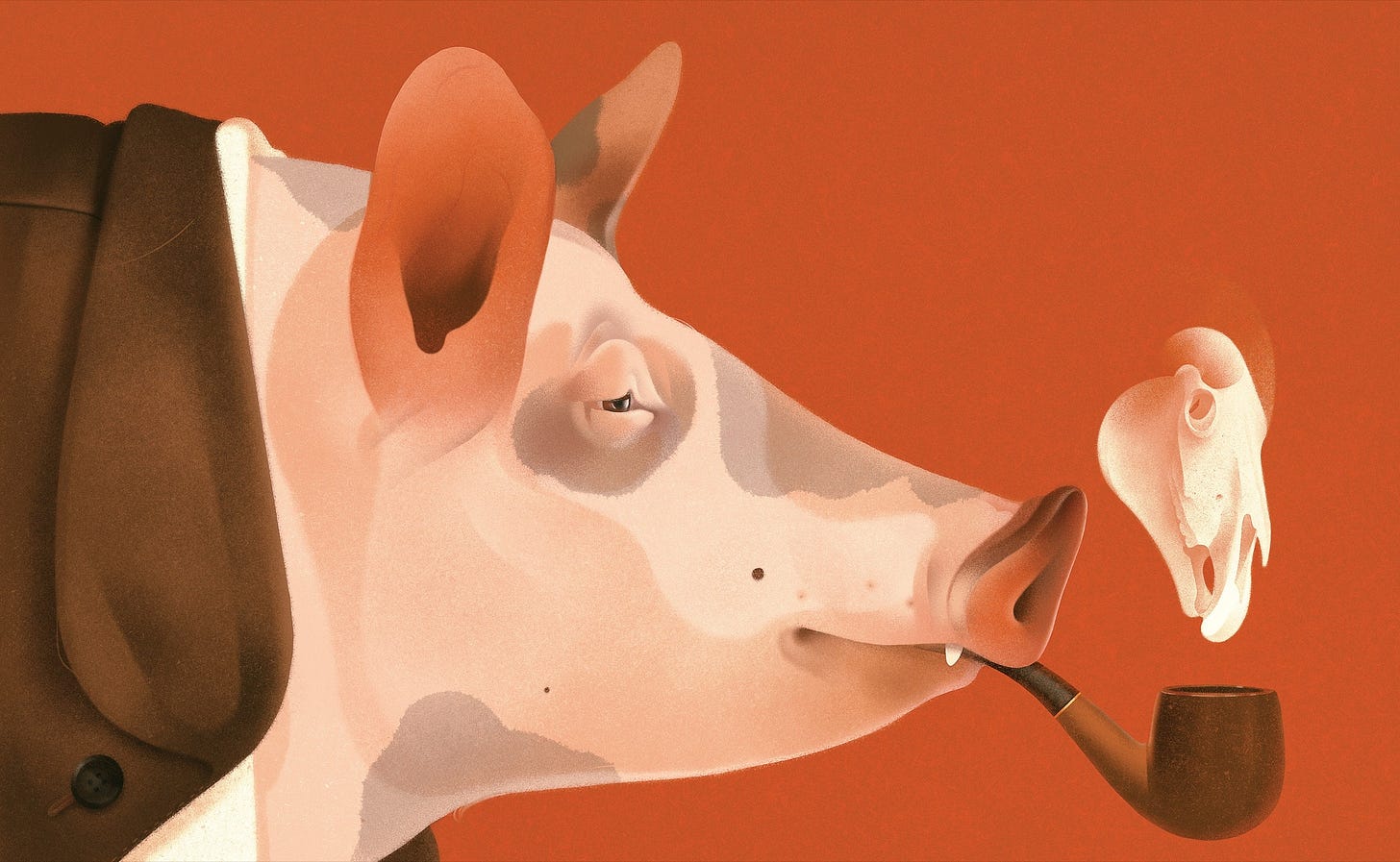
Murray Hunter
Pigs, Politics, and Pollution: The unsettled question of pig farming in Perak
P Ramasamy
Apr 22, 2025
Apr 22, 2025

The publication of Animal Farm by George Orwell was a powerful allegorical critique of authoritarianism, with a particular focus on the oppressive nature of the Soviet system.
Orwell’s decision to use pigs as symbolic stand-ins for power-hungry leaders has often raised questions. Why pigs? Perhaps it was their perceived intelligence, their role in farm hierarchies, or their eventual corruption in the story that made them suitable metaphors for human cruelty and greed.
Yet, outside the realm of metaphor, one could argue that using animals—especially pigs—to illustrate human failings is problematic.
After all, in a realistic sense, the cruelty humans inflict on animals far surpasses anything animals could metaphorically represent about human greed and avarice.
It might even seem ironic that Orwell’s animals, meant to reflect corrupted power, are themselves among the most victimized beings in the human-dominated world.
In Malaysia, pigs carry yet another layer of symbolism. Due to religious prohibitions in Islam, the consumption of pork is strictly avoided by Muslims. As such, pig farming has long been a sensitive and occasionally incendiary topic in Malaysian politics. The issue has re-emerged in the spotlight amid the campaigning for the upcoming Ayer Kuning by-election in Perak.
Opposition parties, particularly PAS, have raised concerns about alleged illegal pig farms operating in Malay-majority areas. While the surface issue revolves around legality, the underlying argument touches on environmental degradation, particularly the pollution of rivers and lakes attributed to poorly managed pig waste.
The Perak state government has denied the existence of illegal farms, but notably failed to directly address the broader issue of water pollution.
A. Sivanesan, the state Executive Councillor in charge of health and other related portfolios, has vigorously defended the legality of the pig farms.
He highlighted the state’s efforts toward modernising the industry, but the actual progress has been lacklustre.
In Ayer Kuning, for instance, only three out of nine pig farms have applied for modernisation. Across the state, there are more than 80 pig farms on private land, yet the support for their development remains minimal—largely due to political disinterest and the influence of Malay-Muslim sentiment.
While Sivanesan defends the status quo, there is little initiative to explore how the state can actively support pig farmers through land access, technical support, or funding for scientific and environmentally sound farm management practices.
Ironically, Perak—one of the largest states in Peninsular Malaysia—has vast tracts of underutilised land. These lands could be leased to Malaysian citizens, particularly the unemployed, for the development of modern, sustainable agriculture, including livestock production. But the will to innovate is absent.
Under the administration of UMNO and Barisan Nasional (BN), Perak remains bureaucratically sluggish, incapable of embracing forward-thinking solutions in agriculture.
The usual promises of development are repeated during elections, but seldom materialised post-victory. Even if UMNO wins the Ayer Kuning by-election, it is doubtful the constituency will see meaningful changes.
Pig farming in Perak thus stands as a symbol of both political hypocrisy and administrative inertia. It surfaces in political discourse only during elections, weaponised for votes rather than understood as a vital economic and food production issue.
The state government’s lack of vision and reluctance to address both environmental and agricultural challenges betrays a broader unwillingness to think beyond religious sensitivities and entrenched political patterns.
Perhaps if Orwell had lived longer, he might have reconsidered the use of pigs in Animal Farm, recognizing the unintended consequences and symbolic baggage they carry—especially in contexts like Malaysia. But beyond literary debates, the more pressing question remains: who, if anyone, is prepared to champion the scientific management and sustainable future of pig farming in Perak?
P. Ramasamy
Chairman Urimai
April 22, 2025
No comments:
Post a Comment